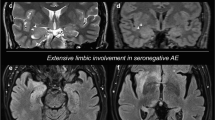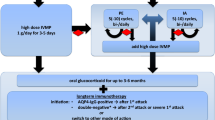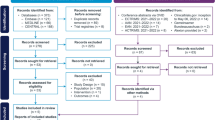Abstract
Introduction
Influenza virus has been associated with cases of Parkinsonism, yet a direct relationship has not been confirmed in the literature. Different mechanisms of post-infectious Parkinsonism have been proposed including inflammatory, oxidative stress, and autoimmune. We report a first to our knowledge case of pediatric autoimmune Parkinsonism with autoantibodies to dopamine D2L receptor (anti-DRD2L antibodies), who underwent deep brain stimulation (DBS) of bilateral globus pallidi (GPi).
Case report
A 13-year-old girl presented with Parkinsonism features after a severe case of influenza A. She underwent extensive work-up and was found to have elevated titers for anti-DRD2L antibodies. Patient was initially treated with IVIG and plasmapheresis with mild improvement, but her condition continued to worsen. She was responsive to levodopa; however, she developed severe dyskinesia. Patient underwent DBS implantation resulting in partial improvement in bradykinesia, tremors, and dyskinesia.
Conclusion
This case is meant to raise awareness of a rare potential autoimmune complication after influenza virus and to share the experience and outcome using DBS to palliate some of the symptoms.

Similar content being viewed by others
References
Limphaibool N, Iwanowski P, Holstad MJV, Kobylarek D, Kozubski W (2019) Infectious etiologies of parkinsonism: pathomechanisms and clinical implications. Front Neurol 10:652. https://doi.org/10.3389/fneur.2019.00652
Dale R, Merheb V, Pillai S et al (2012) Antibodies to surface dopamine-2 receptor in autoimmune movement and psychiatric disorders. Brain 135(11):3453–3468
Carreño M, Martí M, Aldecoa I et al (2018) Unilateral pallidal stimulation for disabling dystonia due to Rasmussen’s disease. J Neurol Neurosurg Psychiatry 90(1):108–110
Tavasoli A, Shahidi G, Parvaresh M et al (2019) Deep brain stimulation in status dystonicus caused by anti-NMDA receptor encephalitis. Parkinsonism Relat Disord 66:255–257
Ramirez-Zamora A, Ostrem JL (2018 Mar 1) Globus pallidus interna or subthalamic nucleus deep brain stimulation for Parkinson disease: A Review. JAMA Neurol 75(3):367–372. https://doi.org/10.1001/jamaneurol.2017.4321
Cury RG, Kalia SK, Shah BB, Jimenez-Shahed J, Prashanth LK, Moro E (2018 Jun) Surgical treatment of dystonia. Expert Rev Neurother 18(6):477–492. https://doi.org/10.1080/14737175.2018.1478288
Funding
IM has participated in research funded by the Parkinson Foundation, Tourette Association, Dystonia Coalition, AbbVie, Boston Scientific, Eli Lilly, Neuroderm, Prilenia, Revance, Teva but has no owner interest in any pharmaceutical company. She has received travel compensation or honoraria from the Tourette Association of America, Parkinson Foundation, International Association of Parkinsonism and Related Disorders, Medscape, Neurochallenge, and Cleveland Clinic, and royalties for writing a book with Robert Rose publishers. The authors have no financial relationships relevant to this article to disclose.
Author information
Authors and Affiliations
Contributions
YS: Manuscript preparation, writing of the first draft.
IM: Manuscript preparation, writing of the first draft, review, and critique.
SG: Manuscript preparation, writing of the first draft, review, and critique.
Corresponding author
Ethics declarations
Ethics approval
The authors confirm that of an institutional review board was not required for this work.
Verbal informed consent was obtained from the parent of the patient for this case report.
We confirm that we have read the Journal’s position on issues involved in ethical publication and affirm that this work is consistent with those guidelines.
Conflict of interest
The authors declare no competing interests.
Additional information
Publisher’s note
Springer Nature remains neutral with regard to jurisdictional claims in published maps and institutional affiliations.
Rights and permissions
About this article
Cite this article
Salamatova, Y., Malaty, I. & Ghosh, S. Pediatric autoimmune Parkinsonism and response to deep brain stimulation. Childs Nerv Syst 38, 203–206 (2022). https://doi.org/10.1007/s00381-021-05152-5
Received:
Accepted:
Published:
Issue Date:
DOI: https://doi.org/10.1007/s00381-021-05152-5




